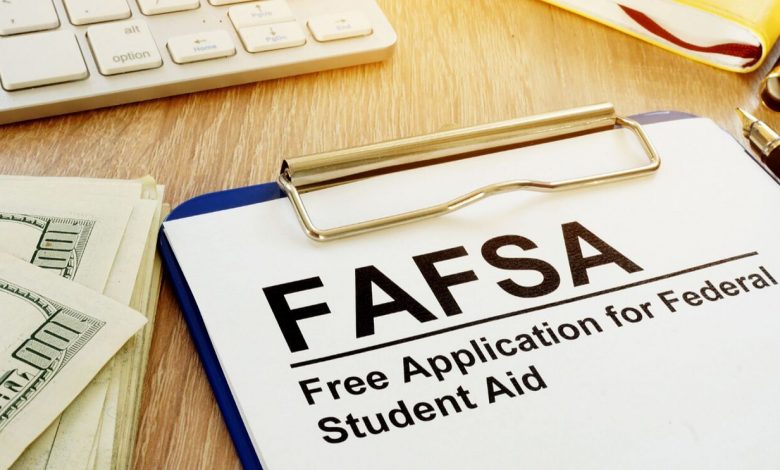
FAFSA income limits; what is the maximum income to qualify for financial aid.
Content Brief (what’s covered):Information Guide Nigeria
- How does Free Application Federal Student Aid (FAFSA) work without an income limit?.
- Maximum income to qualify for different financial aid.
Are you looking at colleges and you’ve begun to think about applying for financial aid? Or you’re wondering what the maximum income to qualify for financial aid is? Well, you are in luck because there’s no limit.
👉 Relocate to Canada Today!
Live, Study and Work in Canada. No Payment is Required! Hurry Now click here to Apply >> Immigrate to CanadaA lot of people believe that if you’re from a wealthy home or have parents who make too much money then you shouldn’t apply for financial aid. But I can tell you that that’s just a myth. It’s a misconception that a lot of people have, and we are going to correct that fallacy right here in this blog post. The actual reality is that there are truly no income limits with the Free Application Federal Student Aid (FAFSA). To confirm your eligibility as a student, all you’ve got to do is fill out the FAFSA form to see if you qualify. It’s as simple as ABC. Don’t listen to people who might want to sway your decision about applying just because you’ve got a rich family background. Your family’s wealth has got nothing to do with the fact that you need financial aid.
Read Also: Check Access Bank Account Balance 2022 Using USSD Code
How does Free Application Federal Student Aid (FAFSA) work without an income limit?.
Now that you know that there’s no maximum income limit to qualify for financial aid, I will be illustrating how FAFSA truly works, and how the calculations of EFC (Expected Family Contribution) and COA (Cost of Attendance) in your school are the only factors that are considered in your Financial Aid applications.
The amount you need is decided by comparing your:
- Expected Family Contribution (EFC)FAFSA income limits
- Need-based and Non-need-based financial aid.
- COA (Cost of Attendance).
Read Also: Zenith Bank Customer Care Numbers, Email Address, and Live chats
Expected Family Contribution (EFC).
Truly, there are no FAFSA income limits or maximum income to qualify for financial aid, however, there is an income crest to attain a zero-dollar Expected Family Contribution (EFC). In the cycle of 2020-2021, if you’re a dependent student and your family has a collective income of $26,000 or below, your expected contribution to college expenses would automatically be zero. It applies also if you are an independent student and your spouse earns no more than $26,000 annually.
👉 Relocate to Canada Today!
Live, Study and Work in Canada. No Payment is Required! Hurry Now click here to Apply >> Immigrate to CanadaOnce your EFC is specified, it’s deducted from your school’s cost of attendance (COA).
The EFC is tallied using a process that is set by law. Financial aid officials at universities use the information included on your FAFSA to discern how much your family can relatively be expected to pay to foot your educational expenses/bills.
A modicum of items taken into consideration include:
- Your family’s earnings (taxed and untaxed) and existing assets.
- The Size of your family.
- All benefits (such as Social Security and unemployment insurance) you or your household receive.
- The number of siblings you have attending college during the same academic year.
Read Also: How to Check UBA Account Balance from any Location
COA (Cost of Attendance).
When filling out your FAFSA, you have to indicate which colleges you want the information sent to. Every school has its own cost of attendance (COA), based on the amount you are required to pay to attend the school for two semesters.Things to Buy For a Newborn Baby in Nigeria
You might seek a certification rather than a degree in some cases. At times such a program might last within a varied length of time. Pay close attention to the period covered to have absolute clarity about your financial aid award.
The cost of attendance estimation encompasses tuition and fees, as well as room and board. It also incorporates what you can considerably expect to pay for books, supplies, loan fees, eligible study abroad programs, and transportation. Finally, the estimate can also involve a stipend for child care and disability costs.
Need-based and non-need-based financial aid
Once the college you applied to has your FAFSA, it can put together an aid package. You could be offered a variety of need and non-need-based alternatives.
A clear illustration would be, for instance, your cost of attendance is $18,000 for the year and the EFC formula denotes that your family should be accountable for $14,000 of that amount. Your need-based aid limit would be $4,000. It might be given to you in the form of grants, subsidized loans, or work-study programs.
Also, you could run into a problem if your family can’t afford your EFC.WAEC Result
At this point, the non-need-based aid comes in. You might be offered a direct unsubsidized loan, and one of your parents might have to take out a PLUS loan as well. Your EFC doesn’t determine your non-need-based aid. Rather, it looks at your COA and deducts all the other aid you have, including your need-based aid, any merit-based scholarships you received from the institute, or personal sources and all other sources of aid.
Assuming that your COA is $18,000 and you receive $4,000 in need-based aid. Eventually, if you have a merit-based scholarship up to $6,000, your non-need-based total is $8,000.Things to buy for restaurant
On a few occasions, you could be offered a combination of non-need-based aid up to that amount. If the financial aid you receive is not enough to fill the gap, you could also consider borrowing a private student loan.
On annual basis, you should fill out the FAFSA to be sure of your financial aid eligibility, since it can change. In a situation whereby your younger sibling follows in your footsteps to college, you might discover yourself qualified for supplementary need-based aid.
Read Also: Zenith Bank Mobile App Download for Easy Banking
Maximum income to qualify for different financial aid.
If you plan to apply for financial aid, there’s usually no maximum income limit. Nonetheless, you’re more liable to be eligible for certain types of aid depending on your income.Npower Recruitment
Federal Grant Eligibility.
Before applying for any federal grant, I’d strongly recommend that you read more about the proposed grant before application.
Some amazing federal grants that are highly recommended when looking for FAFSA are as follows:
Pell Grant.
Pell Grants are allotted to students who indicate high financial need. The amount you receive depends on your Expected Family Contribution (EFC)—which is calculated using the FAFSA—the cost of attendance, whether you’re a full-time or part-time student, and the duration of time you plan to attend the school.JAMB Result
In 2021, if your family’s modified gross annual income is less than $27,000 and your Expected Family Contribution (EFC) is calculated at zero, then you may receive the maximum amount in Pell Grant allotment of $6,495 annually.
You can know your Pell Grant funding based on Cost of Attendance (COA) and Expected Family Contribution (EFC).
Read Also: Top 20 full tuition/high value scholarships for hispanics in USA
Federal Supplemental Educational Opportunity Grant (FSEOG)
If you are eligible for the FSEOG, you must also be eligible for a Pell Grant. Just like the Pell Grant, the FSEOG is for students with special financial needs, but while the grant is federally funded, it is overseen by the financial aid office at participating colleges. Colleges donate their funds to cover 25% of the total award
Not all colleges participate, so you’ll have to check the specifics at the college you’re attending. Kindly read more about the FSEOG and how to apply.JAMB Form
In conclusion, there’s no maximum income limit. Just conduct proper research into the college you desire to attend, and apply for the FAFSA, and wait for your information to be sent to the school. They will grant you their financial aid programs based on their final calculations of your family’s EFC and the college’s COA. Your family’s income only plays a role in their calculations, it doesn’t and shouldn’t deter you from seeking financial aid.
Check and Confirm: How much is Dollar to Naira Today Pounds to Naira Today







